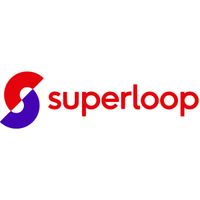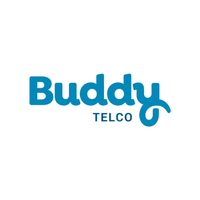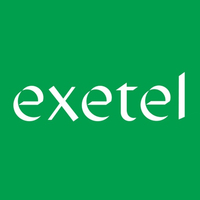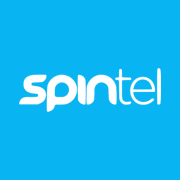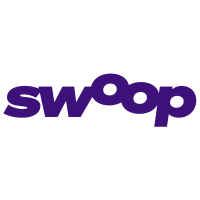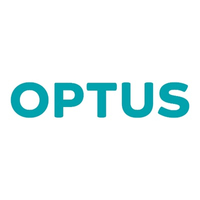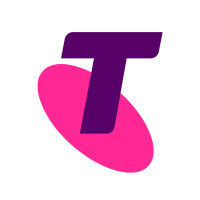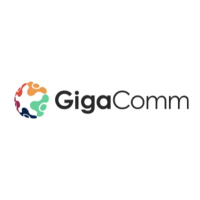Best internet plans for gaming in Australia: supercharge your online play
Fast download speeds to network prioritisation, these are the best plans on offer
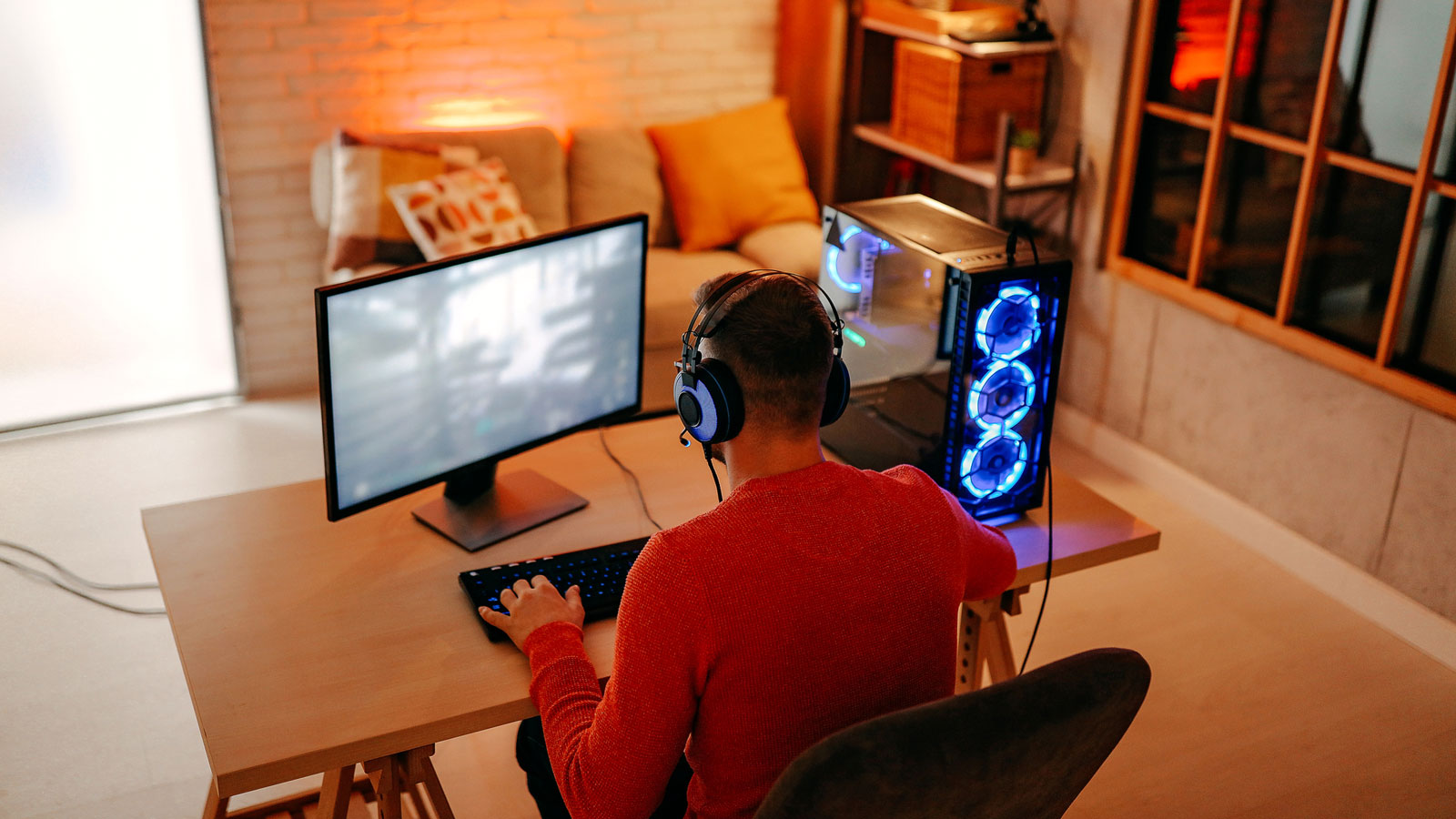
Ever been dominating a lane in League of Legends and your internet drops out? Yeah, we've been there too. There's no need to panic, but it may be time to switch to one of the best NBN plans for gamers.
Some of the best gaming internet plans offer a stable connection for downloading large files or game patches and great ping speeds. No matter how, when or where you play online games, having a secure and fast NBN or internet service is important to stay connected (and keep your game progress safe).
Some of the factors that can influence your overall online gaming experience include:
- Latency (ping)
- Download speed
- The NBN connection type you have
- Data caps
Your internet plan, where you live in Australia (especially in relation to your local exchange), and the ISP you connect with can all affect your online gaming experience.
Here at Tom's Guide, we recommend you shop around for a plan that gives you the most bang for your buck. Fortunately, several ISPs offer no lock-in contracts, so you can chop and change providers until you find the right plan.
In theory, if you have the NBN equipment installed at your address, switching NBN providers should be relatively straightforward, with most changes typically processed in less than a day.
In this exclusive guide to all things Internet for gaming, we've conducted a deep dive into the current state of NBN plans, using data published by the Australian Competition and Consumer Commission (ACCC). We've also considered community feedback and other performance metrics (explained further down) to come up with these top recommendations below.
Best NBN plans for gaming: our picks
Superloop | NBN 1000 | Unlimited data | No lock-in contract | AU$99p/m (for 6 months, then AU$109p/m)
It's certainly true that a lightning-fast NBN connection doesn't necessarily mean lightning-fast online play, but it does have its uses when it comes to downloading large game files. Fortunately, Superloop also performs well in the latency arena, which does affect online gameplay.
The most recent ACCC results, published in March 2025, found Superloop to have one of the lowest latency figures of any Australian NBN provider, at 8.1 milliseconds during the busy evening hours.
Superloop states that it’s able to achieve these low latency figures because its entire fibre network is connected to all 121 Points of Interconnect (POI) around Australia, meaning there are no extra stops in the data transmission.
Buddy Telco | NBN 100 | Unlimited data | No lock-in contract | AU$73p/m using code BUDDY100 (for 6 months, then AU$85p/m)
While some elite gamers may scoff at the idea of ‘only’ having an NBN 100 plan (which has top download speeds of 100Mbps), the truth is that this speed tier is more than fast enough for most online gamers.
If you're keen to try ABB, but don't want to pay top dosh, we'd suggest giving their subsidiary, Buddy Telco, a go. With access to the same servers and infrastructure, Buddy has the potential to offer gamers identical quality to that of Aussie Broadband, but for much less. The plan promises to reach 99Mbps download speeds during busy evening hours.
This plan does come with a speed caveat, but it will not likely make much of a noticeable real-world difference. With that in mind, you'll have a relatively low ongoing cost for an NBN 100 plan, so it's a clear winner for budget-conscious gamers.
Aussie Broadband | NBN 100 | Unlimited data | No lock-in contract | AU$85p/m (for 6 months, then AU$95p/m)
Aussie Broadband is another highly recommended NBN provider by Aussie gamers, and it makes strong claims about how well its network routing is optimised for gaming. This includes establishing "international transit links into major gaming regions such as the USA and South East Asia." Essentially, Aussie Broadband will endeavour to find the quickest route between you and popular gaming servers.
Aussie Broadband’s NBN 100 plan advertises 99Mbps download speeds during the busy evening hours and 16Mbps upload speeds (it’s one of the few providers offering an NBN 100/40 plan for those who want even faster uploads).
Aussie Broadband also provides you with information about ping times, putting their money where their mouth is when it comes to performance transparency. You also get unlimited downloads, so you can rest assured that 130GB Call of Duty download won’t put you over your cap.
Lastly, Aussie Broadband offers extremely fast average download speeds from Steam, which for PC gamers will ensure you get your games and patches as quickly as possible.
Exetel | NBN 100 | Unlimited data | No lock-in contract | AU$65.99p/m (for 6 months, then AU$84.99p/m)
While some elite gamers may scoff at the idea of ‘only’ having an NBN 100 plan (which has top download speeds of 100Mbps), the truth is that this speed tier is more than fast enough for most online gamers. For the most part, it’s pretty affordable, and the only thing you’re sacrificing over faster tiers is download speed, meaning it may take a little longer for games and patches to download.
According to ACCC data published in March 2025, Exetel recorded the quickest ping speed of 7.5ms. By comparison, Leaptel's speed ranked at 7.9ms and Superloop followed close behind at 8.1ms.
Exetel also offers Speed Boost days, which allow you to accelerate your download speeds to the next speed tier for up to five days per month. On the NBN 100 plan, this means you can boost to the NBN 250, which can be super handy if you have large game files you need to download. Do note, though, that Exetel currently advertises 225Mbps speeds during the busier evening hours.
Are there any other providers favoured by gamers?
Why you can trust Tom's Guide
Aussie Broadband is the only NBN provider in Australia that offers dedicated gaming plans, following MyRepublic’s exit from Australia, and Optus getting rid of its Gamer Plan in 2021.
But some NBN providers do still have gamers in mind, by offering specific tools that can theoretically help improve your online gaming experience.
Telstra, for example, offers a couple of options that claim to improve your internet connection when it comes to gaming.
The first is a free Internet Optimiser service that it says can help to reduce lag by letting you prioritise traffic to your gaming devices, and selecting which servers in which countries you can connect to.
The second is a dedicated Game Optimiser service that costs AU$10p/m. Signing up for Game Optimiser will switch on the DumaOS network management software that’s built into your Telstra router, which provides a range of features designed to prioritise and optimise online gaming traffic.
For example, you’re presented with server presets for a selection of popular online games, and you can view ping speeds of various servers, both locally and overseas, to determine which is going to be best for you. It’s a service that hardcore gamers could find useful, but if you just play online casually, the free Internet Optimiser service may suffice.
Fair warning too: if you already have a Netgear or Netduma gaming router with DumaOS, then you’ll be able to access the same features without having to pay a subscription fee to Telstra.
Best NBN plan for gamers who want more speed
If you’re a serious online gamer who wants to be able to download new games and patches more quickly, it’s definitely worth considering stepping up from our NBN 100 recommendations to a 250Mbps NBN 250 plan.
Since we first published this article in April 2023, more providers have improved their typical evening speed on this tier, and advertise the full 250Mbps download speeds. Previously it was just Telstra and Southern Phone that advertised top speeds, but now Aussie Broadband, Swoop, Superloop and Origin are among the ranks.
Spintel | NBN 250 | Unlimited data | No lock-in contract | AU$80p/m (for 6 months, then AU$89.95p/m)
SpinTel is a great pick for online gaming as it offers sensational speeds for a low cost. Advertising maximum speeds of 240Mbps during the typical evening hours, this deal has recently been slashed by AU$9.95 off the life of the plan, making it one of the cheapest NBN 250 plans.
Do note, though, that this SpinTel NBN plan is only available for addresses with FTTP and HFC connections.
Superloop | NBN 250 | Unlimited downloads | No lock-in contract | AU$85p/m (for 6 months, then AU$99p/m)
Superloop features in our best NBN 250 plans for gamers too. Again, this is thanks to latency data published by the ACCC, and 250Mbps during the evening hours.
As mentioned earlier, you get five free Speed Boost days each month, which temporarily boosts your speed up to the NBN 1000 speed tier. Any unused days roll over into a Boost Bank, up to a maximum of 30 days.
Swoop | NBN 250 | Unlimited data | No lock-in contract | AU$82p/m using code LOVE37 (for 6 months, then AU$119p/m)
Advertising the maximum 250Mbps download speeds during the busy evening hours, Swoop has quite literally swooped in to undercut other ISPs to offer a well-priced (and seemingly well-rated) NBN service. Swoop is also running an attractive introductory offer that saves AU$37 for the first six months — that's AU$222 total!
While the regular monthly price is one of the most expensive, the initial six-month outlay is highly competitive.
Best gaming NBN plan if money is no object
If you take your gaming super seriously and you’re prepared to pay top dollar for the fastest possible NBN connection, then only an NBN 1000 (aka a Gigafast or ‘Ultrafast’) plan will do. While no NBN provider currently advertises the maximum 1Gbps download speeds this tier theoretically delivers, many do offer in excess of 500Mbps, even during the busier evening hours.
A faster download speed doesn’t necessarily mean decreased latency, but an Ultrafast plan can help supercharge your game downloads and ensure that there’s less interference to games from other household internet users.
Spintel | NBN 1000 | Unlimited data | No lock-in contract | AU$90p/m
Spintel's NBN 1000 offering boasts a massive 860Mbps, which is plenty of speed for fast and lag-free gaming. If maximising your savings and having ultrafast speeds is your top priority, SpinTel recently slashed the price of this ultrafast tier by AU$10.95.
Although there’s no introductory discount, that everyday price is so low that it’s still the cheapest NBN 1000 option you can currently find.
Buddy Telco | NBN 1000 | Unlimited data | No lock-in contract | AU$99p/m
After a recent speed bump, Buddy Telco’s Zoomy NBN 1000 plan now advertises a whopping 875Mbps downloads and 42Mbps uploads during the busy evening hours of 7pm to 11pm. While SpinTel has stolen its crown for the cheapest NBN 1000 provider, Buddy still takes the helm as an all-round affordable, but seriously fast option, especially for budget gamers.
Do note, though, that this plan is available for HFC and FTTP addresses only.
Optus | NBN 1000 | Unlimited data | No lock-in contract | AU$109p/m (for 6 months, then AU$129 p/m)
Clocking in at 780Mbps downloads, you can expect to hit 100.6% of advertised speeds on Optus' ultrafast plan during busy evening hours, according to ACCC data.
Keep in mind, though, that after the offer ends, the price will skyrocket above the average cost for this speed tier of AU$119.57. And if you disconnect your service before 36 months is up, you'll need to pay an additional fee for the modem.
Telstra | NBN 1000 | Unlimited downloads | No lock-in contract | AU$150p/m
If money really is no object and you want the absolute fastest consumer NBN connection available right now in Australia, then you have to sign with Telstra. Telstra’s NBN 1000 plan will set you back AU$1,800 over 12 months, making it a far more expensive option compared to other ISPs at this speed. The average monthly cost of an NBN 1000 plan is AU$120.26, making Telstra’s plan AU$30 more expensive.
But for that somewhat hefty outlay, you’re promised 700Mbps typical evening speeds, which is around the average speed for the tier.
Best NBN alternatives for gaming
If your premises can't be connected to the NBN via fixed-line connection — or you only have access to a fibre-to-the-node (FTTN) connection that limits your download speeds to an absolute maximum of 100Mbps and is susceptible to increased latency — you do still have options to get yourself online.
These include 5G home internet and NBN alternatives such as Opticomm and GigaComm.
5G home internet for gaming
5G home internet plans use, you guessed it, 5G mobile signals. 5G has the potential to offer crazy fast internet speeds up to 1,000Mbps. Currently, however, the fastest claimed typical evening speed of a 5G home internet plan is Telstra, with a figure of 378Mbps. Unfortunately, lightning-fast speeds can only be achieved by households in areas with exceptional 5G coverage, and just because your area has 5G phone coverage doesn’t mean it will have home internet coverage too.
But, while this can be great for game downloads, as we know, latency is a key figure when it comes to real-time online play.
Because of the inherent wireless nature of the technology involved, 5G home internet will have a higher latency than a fixed-line NBN connection. Factors that can affect your network performance include interference of the signal from the transmission tower to your home, the distance between the tower and your home, and the general strength of network coverage.
A good proportion of 5G home internet plans also come with either capped speed limits — usually 50Mbps and 100Mbps — or occasionally capped data limits, which make them a bad choice for gamers, who are some of the biggest file downloaders thanks to the large size of games, updates and patches.
With these factors in mind, we feel a 5G home internet plan probably isn’t the best option for those who take gaming seriously. If you’re a more casual gamer who only plays online occasionally, it’s an option you could certainly investigate and trial. To help guide you, we’ve picked out the following 5G home internet plan from Optus as our top recommendation.
Optus Plus Entertainer Superfast plan | Uncapped speeds | Unlimited Data | AU$89p/m (for 6 months, then AU$99p/m)
We’ve selected Optus because it’s one of just three 5G home internet providers to offer a plan with uncapped limits on both speed and data. While uncapped speeds technically mean you could achieve gigabit speeds (or very close to), it doesn't always mean you will. Optus does, however, state that your typical evening speed on this plan should be around 210Mbps, which is still plenty fast.
The telco does admit that 5G home broadband isn’t the best option if you’re a serious gamer, but if you only play online casually, then it could be a perfect fit.
Optus 5G home internet plans use the Nokia FastMile 5G modem, and you can get it for free if you stay connected for 36 months. If you cancel your plan before the 36-month period is up, you’ll need to pay AU$16 for each remaining month.
The main downside to an Optus 5G home internet plan lies in the company’s network coverage. Optus does provide a 5G coverage map which can give you some indication as to whether 5G home internet is available in your area.
However, we’ve tried it ourselves and have found a couple of discrepancies. Firstly, it says the home address of this writer doesn’t have any 5G coverage (both mobile and home), but I do actually achieve good 5G signal (and download speeds) on my phone connected to the Optus network at home.
We then tried another home address about five minutes down the road from our home. This time the coverage map said “5G Internet may be here. To use it, you’ll need an Optus 5G modem.” But when we tried to sign up for a home 5G plan using this address, we were told it wasn’t available in our area.
The Tom’s Guide office in central Sydney, meanwhile, was able to sign up for a 5G home internet plan without issue, so do take these findings with a grain of salt.
If you're looking for a cheaper 5G alternative that still offers uncapped speeds and data, SpinTel's 5G plan could be a good contender. SpinTel does use the Optus Network to provide its NBN and 5G services, meaning the services are relatively similar, just without the premium price tag.
SpinTel 5G Unlimited Wireless Broadband | Uncapped speeds | Unlimited data | AU$79p/m (for 6 months, then AU$89p/m)
Advertising 240Mbps during the busy evening hours, this SpinTel 5G plan could reach higher speeds, thanks to its uncapped tier.
Do note though, that at the time of writing, SpinTel's rate is slightly more expensive than Optus, as you'll need to pay AU$25 upfront for the modem. This means the total first-month cost will be AU$114 for the plan.
Private telcos

If you currently game online on an NBN connection but find you suffer from lag or dropouts, then you may want to find out if you can access the fibre network of a private telecommunications provider such as GigaComm.
GigaComm claims low latency of 2-4 milliseconds on its fibre network, making it a genuinely viable NBN alternative for gamers if true. GigaComm says it’s able to achieve these low speeds because it uses its own infrastructure, which employs a combination of fibre optic and fixed-wireless solutions. Whether you’re in a home or an apartment building, GigaComm will either install a wireless antenna on the roof (for homes), or use existing copper cabling and implement G.Fast technology (in apartment buildings) which allows it to deliver up to 1,000Mbps speeds. In both cases, you will physically connect in the usual way of plugging a router into a wall outlet.
The only caveat with GigaComm lies with its accessibility. Currently, GigaComm is limited to certain areas in Sydney and Melbourne, and it’s most likely to be found in new-build developments (both houses and apartment blocks). Currently, GigaComm is only servicing apartments, but we will let you know if this changes.
We've picked out one GigaComm plan — exclusively for apartments — which offers the fastest gigabit speeds. We've also selected the 24-month contract option, as this makes the installation cost completely free. You can select either a 12-month contract or a month-to-month contract, but this will see the install cost increase up to a maximum of AU$1,500.
GigaComm | FTTx Gigabit | Unlimited data | 24 month contract | from AU$99p/m
GigaComm's plans for apartment buildings are slightly different. The minimum speed you can get is 200Mbps for AU$79p/m, but once again we've selected the gigabit plan.
As is the case with the plans for houses, you won't have to pay a single cent for installation if you select the 24-month contract.
You can check to see if GigaComm services are available in your building on the company’s website. You will need to select a plan first and then you will be presented with a box that you can type your address into, to see if GigaComm is in your area.
If it is available, the company aims to have you connected within two weeks. If services aren’t available but there are plans to roll out in your suburb, then you can get connected, but it will just take a bit longer. If GigaComm isn’t available and there are currently no plans for a roll-out, the company says you can register your interest and you’ll be told as soon as services are available.
Choosing an internet plan for gaming: what to look for

Choosing the best internet plan for gaming in your household is no walk in the park. A huge range of variables can affect the performance of your connection, and just because your friends or family may have a good experience with a certain ISP, doesn’t necessarily mean you’re going to as well.
Accessibility: We chose the NBN 100 speed tier for our best recommended plans at the start of this guide for a variety of reasons. Firstly, they are the fastest and most accessible plans available to all gamers with a fixed-line NBN connection in Australia. That’s because NBN 100 plans are compatible with all connection types – although admittedly, connection technology still does make a difference and ACCC reports consistently show that, in most cases, there’s a measurable difference in performance between a fibre-to-the-node (FTTN) and an FTTP connection on an NBN 100 plan. FTTN connections are rarely able to achieve that very top 100Mbps speed, for example.
Speed: And speaking of that speed, we also feel that 100Mbps downloads should be adequate for the majority of gamers. Sure, you won’t be able to download a large game in the blink of an eye, but waiting 2 or 3 hours for a download to complete is something we think most people are perfectly happy to do…
Price: …especially when you factor in the cost of NBN plans. NBN 100 plans are, on average, AU$300 cheaper than NBN 250 plans and AU$550 cheaper than NBN 1000 plans over a 12 month period. For us then, this combination of speed, value and accessibility makes it our choice for the overall best NBN plan for gaming for most people.
Gaming internet FAQ
As we touched upon in the introduction to this guide, other factors that can affect your online gaming experience include, ping, download speed, connection type and data caps. But exactly what role do these play?
What are ping and latency, and why are they important for gaming?
Ping is a networking term that relates to the time it takes for data to be sent from its source to its destination. Latency is the term used to measure the time for that data to make a round trip back to the source. While they are technically different terms, they now tend to be used interchangeably.
In gaming terms, both these metrics can affect the response time of the action you see on screen. When you press a button or move a joystick, you want the associated action to take place instantaneously. If the ping speed of your NBN connection is high – it’s measured in milliseconds – then your games are going to be less responsive.
It also affects online gameplay. If your connection suffers from high latency (lag), then your in-game avatar’s actions in game can be delayed and slower compared to others on connections with lower latency.
Your connection type and the ISP you’re signed up with will play the biggest role in determining the ping speed and latency of your connection. The download speed of your NBN plan can also play a small factor (particularly if the connection is being used to near its maximum capacity), but the Australian Competition & Consumer Commission did say in its most recent report that “higher bandwidth/speed does not guarantee lower latency under load.”
Your router can also play a large role, with even the ACCC chiming in that “...the model and the configuration of the router can have a significant effect on the extent to which latency deteriorates under load.”
Therefore, investing in one of the best gaming routers could be one additional change that could help alleviate ping-related troubles.
Is there a ‘best’ NBN connection type for gaming?
The physical connection type at your address also affects the speeds you can achieve. Concerning fixed-line NBN, FTTP connections are the ‘best’ type because they use fibre-optic cabling the entire way from the point of distribution to your home. This means data can be sent incredibly quickly compared to other connection types, which use varying amounts of legacy copper or coaxial wiring in their infrastructure.
In theory, then, FTTP connections are going to have lower latency than other NBN connections. However in reality and based on community feedback, the difference in speed will be determined by several factors, and so you could find that the ping of one FTTP connection is about the same as the ping on a copper-based FTTN connection.
It will ultimately come down to where you live in Australia, where the server you’re trying to reach is located and how many hops (the routers and other systems the data signal has to travel through) your request has to make.
How does download speed affect gaming?
It’s not just online gaming that can be affected by a poor NBN connection. Big-name games for PC, PlayStation and Xbox often require huge downloads (many AAA-games are now over 100GB) before you can play them. While you first need to make sure you have enough storage space on your console to store the downloads, ideally you’re also going to want a fast NBN connection to ensure your games download as quickly as possible.
The best NBN plans to ensure fast game downloads, then, are going to be NBN 250 and NBN 1000. These only work on fibre-to-the-premises (FTTP) and some hybrid fibre coaxial (HFC) connections, so if you connect to the NBN with any other connection type, then the best you can expect to get is an NBN 100 plan.
How else can I improve my internet speed?
1. Connect via Ethernet: The first is to connect your gaming devices to your router via an Ethernet cable. Wi-Fi may have undergone improvements in recent years, especially with the introduction of Wi-Fi 6, but creating a physical connection using an Ethernet cable is going to offer the best chance of remaining constantly connected and achieving the lowest possible latency.
2. Upgrade to a gaming-grade router: The best gaming routers offer more customisation compared to standard consumer routers. This allows you to finetune your internet connection to ensure your gaming device(s) get network priority over others in your home.
3. Seek out local gaming servers: As we’ve touched upon several times in this article, ping speed and latency have the greatest impact on your online gaming sessions. So, when you log on to play games online, you’ll ideally want to connect to servers as close to Australia as possible. This will help keep ping to a minimum and keep your games running smoothly.
Sign up to get the BEST of Tom's Guide direct to your inbox.
Get instant access to breaking news, the hottest reviews, great deals and helpful tips.

Lucy Scotting is a digital content writer for Tom’s Guide in Australia, primarily covering NBN and internet-related news. Lucy started her career writing for HR and staffing industry publications, with articles covering emerging tech, business and finance. In her spare time, Lucy can be found watching sci-fi movies, working on her dystopian fiction novel or hanging out with her dog, Fletcher.
- Max LangridgeSenior Editor, Tom's Guide AU
